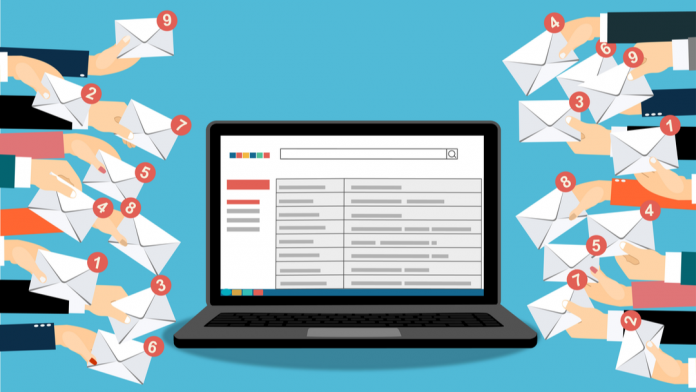
With half of the world currently under lockdowns, businesses are devising strategies to stay afloat and brave these curious times. The current crisis is forcing firms to reevaluate their marketing strategy and reshape it according to the present-day environment.
Companies are not investing in massive campaigns anymore and instead relying on methods that require little investment. Naturally, the importance of email marketing has increased significantly as it’s an extremely low cost, high return method of communication.
As a marketer, emails might be the most important weapon in your armory at the moment. However, one small misfire could be a potential PR disaster if you’re not careful.
Some Common Email Marketing Mistakes to Avoid
By now, many brands have sent out their coronavirus-related emails. While some have been able to get their message through, others haven’t had great luck.
Barnes & Noble out here giving minimal effort with its coronavirus brand email pic.twitter.com/XsMA3eFLrR
— Scott Gustin (@ScottGustin) March 14, 2020
Be it a complete lack of effort in crafting a powerful mail or coming off as opportunistic —many brands are completely missing the mark. These misfires can have potentially long-lasting effects on a company’s image as these are particularly sensitive times.
So while you may be tempted to send out a flashy “we are in this together” email in an effort to remind customers of your company’s existence, following some guidelines might prevent that mail from becoming a source of mockery on social media.
Don’t Encourage People to Disregard Social Distancing
The world is extremely polarized at this point. There are a million opinions on on-going pandemic. Many people are in favor of strict restrictions while some are making strong arguments against the coronavirus lockdowns.
No matter where you stand on this debate, it is extremely ill-advised to ask people to ignore social distancing protocols. Some companies have been guilty of asking customers to continue shopping from their products as if everything is normal.
In fact, it has become a recurring theme with many emails where the company seems more worried about losing business than the health of its customers. While many brands take the courtesy of expressing their concern of the customers in the beginning, the overall email comes off as distasteful nonetheless.
Folk's we have a new leader for best brand-related corona email pic.twitter.com/xUn3ef7O8a
— PFTCommenter (@PFTCommenter) March 18, 2020
These days it is extremely important to read the room while reaching out to the masses.
Brands need to find a more creative way to connect with customers. This could be done by providing useful information about the pandemic or help out in any other form.
Don’t Engage With Customers that Haven’t Shopped From You in Years
Customers who haven’t engaged with brands in years are reporting a sudden inflow of emails from the said brands. Suffice to say, this isn’t the best marketing strategy. If I didn’t care for a particular brand months preceding to the pandemic, I would be least interested in seeing its email in my inbox now.
Brands should not see the current crisis as an re-engagement opportunity with former customers. Not only is this strategy ineffective but it reeks of opportunism. Currently, Twitter is filled with people complaining about brands mailing them out of the blue, this isn’t the sort of publicity any brand aspires to achieve.
Therefore, it’s better to reach out to active customers instead of individuals that might’ve engaged with you eons ago.
Customers who have an on-going relationship with your brand will be more receptive to the message and would welcome any update you’re sending out.
Don’t Disguise Usual Marketing Mails as Thoughtful Messages
As the popular phrase goes, “It’s not what you say, but how you say it”. Your goal with the mail could be different but if people perceive it as an advertisement trying to capitalize on the pandemic —the mail will do more harm than good.
This is why it’s important to be careful with the overall structure of the message. Never insinuate that your products and services are essential to the customers. While many us would like to believe what we do is important, one shouldn’t ignore the prevailing definition of essential services.
Similarly, do not try to create a false sense of urgency by using words like “hurry up” and “buy now”. So many items are currently going out of stock and customers won’t react well to messages that instill further feelings of uncertainty.
Empathy and compassion should be the driving force behind all emails in the coronavirus affected world. People are afraid and anxious at this point and rather than throwing another advertisement their way, brands should offer something of value.
Get this right and people would gladly open your emails the next time it ends up in their inbox.










